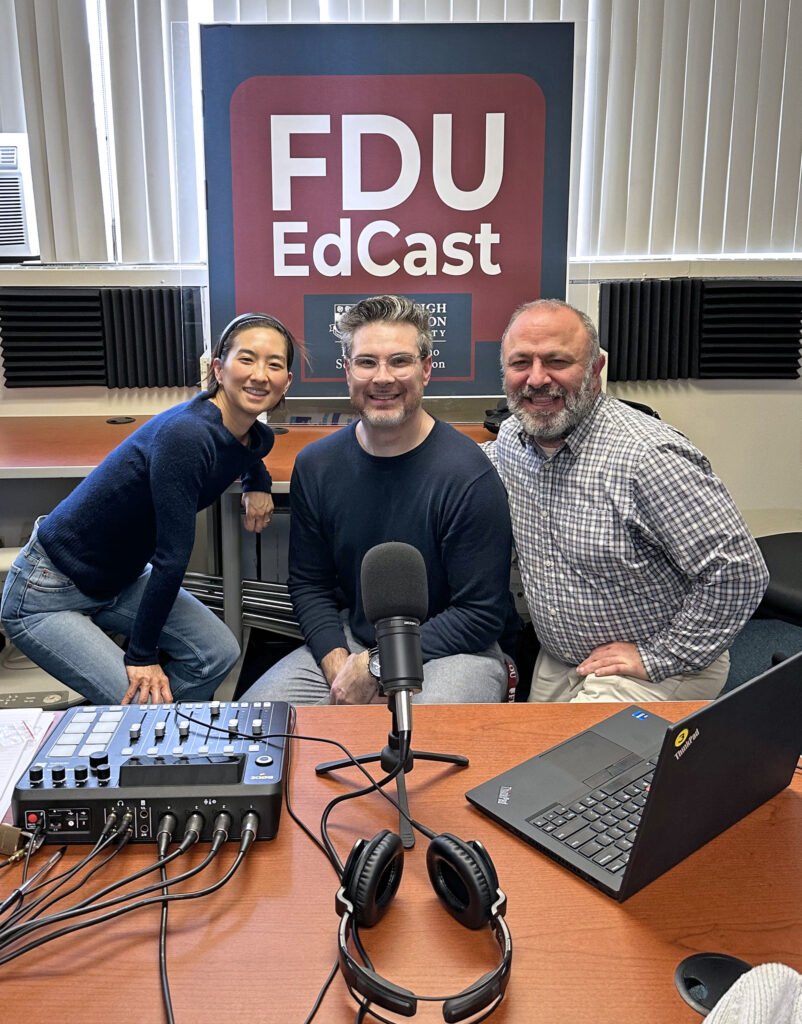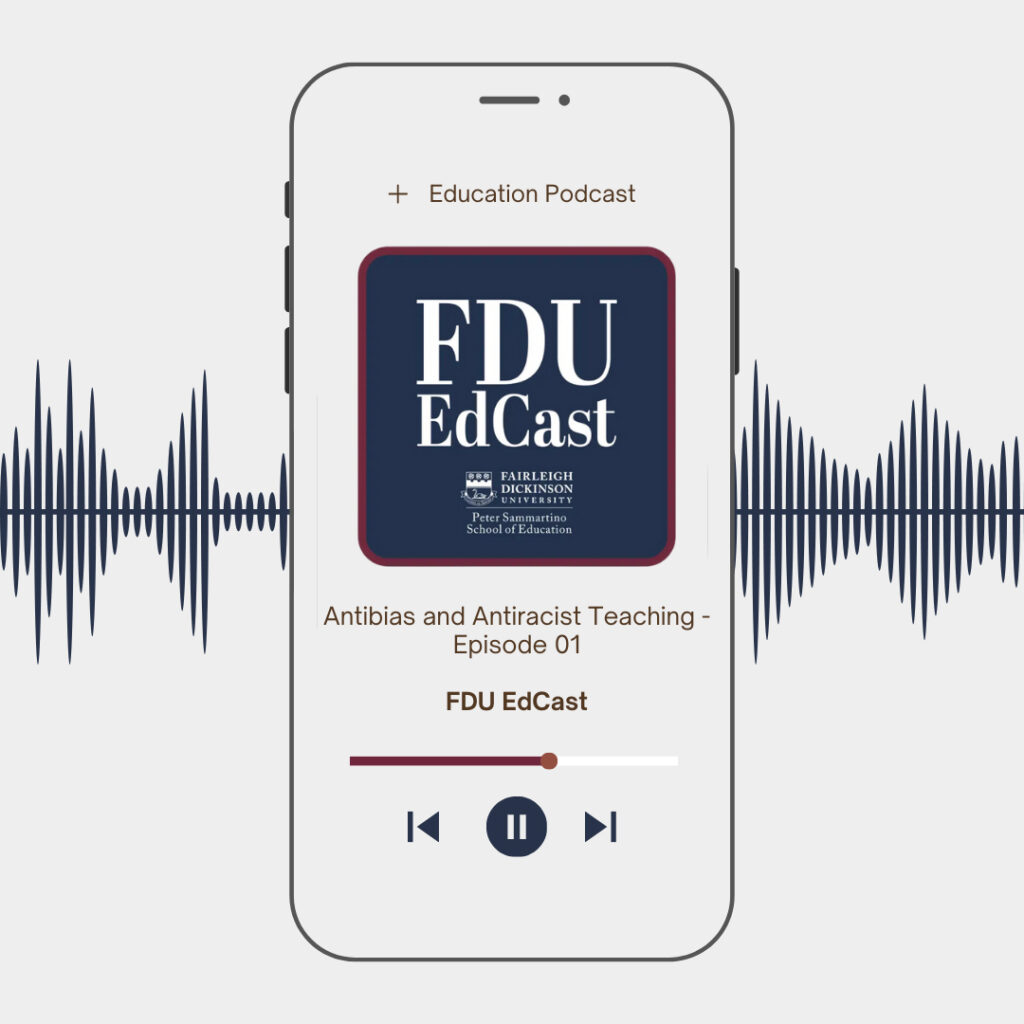Listen Up: School of Education Debuts Podcast Called FDU EdCast
By Kenna Caprio

From left: Sora Suh, assistant professor of second language acquisition; Brian Mooney, assistant professor of education; Derek Sica, supervisor of ESL for Jefferson Township Public Schools.
March 13, 2024 — Grab some headphones or charge the AirPods, there’s a new FDU podcast waiting in the queue.
“There’s amazing work going on here. I brought up the idea of a podcast to document, archive and share some of the work that’s happening in the School of Education,” says Brian Mooney, assistant professor of education at the Metropolitan Campus.
FDU EdCast is a “community-driven, collaborative effort,” with a K-12 education slant and a focus on educational justice.
“We’ve covered issues related to inequity, being culturally responsive, antiracist education, linguistic justice, antibias and antiracist teaching. We just recorded an episode on supporting multilingual learners,” says Mooney. “Teaching is an act of social justice and the classroom is a political space. The teachers I’ve worked with over the years care deeply about young people and are concerned about the future of our democracy.”
The first five episodes, and one bonus episode, are available now on Spotify, Apple Podcasts and Google Podcasts. Listeners can also stream a video version of the podcast on YouTube. Episodes are released monthly during the academic year.

Mooney, who taught high school for a decade and who has an audio background as a music producer and DJ, first experimented with podcasts during his PhD program at Teachers College, Columbia University.
“It was 2020. I was taking a lot of doctoral classes online, and for one course we had to create a multimedia project. I reached out to a scholar from Michigan State, April Baker-Bell, an expert on linguistic justice. She hopped on a podcast with me and my former students to talk about her book Linguistic Justice: Black Language, Literacy, Identity, and Pedagogy and have an intergenerational dialogue about language, literacy and culturally responsive teaching.”
The experience opened Mooney’s mind to think more broadly about text — what counts as text? What counts as something worthy to study? Where does teaching intersect with media?
“We’re far beyond the written word on the page as the only form of knowledge. When we look around at all the different media texts in the 21st century — blogs, films, music — they represent countless opportunities to help young people read their world more critically.”
Eventually, Mooney rebranded that podcast from 2020, and included it as an FDU EdCast bonus episode.
“Journal articles and books — that audience is very limited. Or locked behind a paywall. I started thinking, how can we engage in scholarship that’s equally rigorous and share it with a wider audience? It’s podcasting as accessible public scholarship,” he says.
Though Mooney hosts and produces the podcast, it’s been a collaborative project, with buy-in from faculty and administration alike.
“FDU EdCast is such an exciting way for us to share the brilliance of our School of Education faculty, students, alumni and staff,” says Kathryn Spence, director of Peter Sammartino School of Education. “FDU EdCast highlights the SOE’s continued focus on equity and justice in education at all levels. Dr. Mooney has purposefully selected topics for each episode that highlight the expertise of our faculty and their work.”
Guests have included Khyati Joshi, professor of multicultural education; Kara Alaimo, associate professor of communication; Randall Westbrook, senior lecturer of education; and Ian Levy, associate professor of school counseling at Manhattan College.
In his podcast appearance, Westbrook discussed the life and work of W.E.B. Du Bois, a prominent Civil Rights leader (one of the founders of the NAACP).
“I’ve written extensively about DuBois and wanted to talk about his role as a pioneering thinker in the field of what we call multicultural education. His relevant work continues to enrich educational, social and political thought. A forum like the FDU EdCast is a unique place where wide-ranging conversations like this can take place,” says Westbrook.
Down the line, Mooney intends to grow the podcast by interviewing education leaders and students in the local community and by teaming with WFDU to air episodes.
“There’s content that’s relevant to students, teachers, partner districts, alumni, school administrators, policymakers and young people,” Mooney says. “We want to reach them all.”